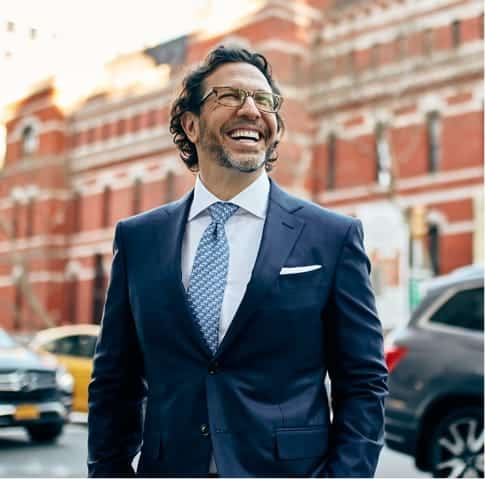New York Center for Facial Plastic Surgery
Schedule a consultation

Information About Choosing the Best Facial Plastic Surgeon, Dr. Andrew Jacono

In today’s competitive, image-driven society, facial cosmetic surgery is extremely popular. Most people want to look young, vibrant, and beautiful.
Though it seems like everyone is interested in aesthetic procedures, few are willing to share their experiences. Even fewer will recommend you, their doctor. Referrals are a great way to inspect a surgeon’s work, but without them, potential patients don’t know where to begin.
The best first step toward getting plastic surgery is to do your research. Usually, doctors’ websites offer information about their training and qualifications. However, not every cosmetic surgeon has the same experience.
When choosing a cosmetic procedure, you should consult a board-certified aesthetic surgeon. These practitioners are the most experienced.
Board certification is the process by which physicians certify their expertise in a particular specialty. These specialties are varied but can include pediatrics, dermatology, and, of course, cosmetic surgery.
Board-certified and fellowship-trained facial plastic surgeons such as Dr. Jacono, complete 5 years of otolaryngology/head and neck surgery residency. During this time, physicians only operate on the face, nose, eyelids, head, and neck. They usually perform cosmetic procedures like rhinoplasty, blepharoplasty, and facelift. They also perform cancer and reconstructive surgeries.
Surgeons then go on to complete an additional year of fellowship training, specializing in the most current techniques. This fellowship is sponsored by the American Academy of Facial Plastic and Reconstructive Surgery.
Board certification requires extensive training. Physicians must also pass an exam for their specialty. The American Board of Medical Specialties (ABMS) is the gold standard in board certification and ensures that its members:
Currently, there are five boards that are either members of the American Board of Medical Specialties (ABMS) or an equivalent board. These include:
The American Board of Facial Plastic and Reconstructive Surgery certifies facial plastic surgeons. The only physicians who qualify for the board exam are board-certified diplomates of either The American Board of Otolaryngology/Head and Neck Surgery or The American Board of Plastic Surgery. The American Medical Association (AMA) recognizes The American Board of Otolaryngology/Head and Neck Surgery, The American Board of Plastic Surgery, and The American Board of Facial Plastic and Reconstructive Surgery as legitimate entities.
New York Center for Facial Plastic Surgery
Schedule a consultation

Although certification is important, it is only the first step in considering a surgeon. You should also look at their results. Skilled physicians should have many before and after photographs on their websites. Cosmetic surgery is both a skill and an art. Just because the doctor has credentials doesn’t mean that they are the right person for your needs.
Potential patients should also research their doctor’s hospital affiliations. If a physician performs surgery at an accredited hospital, this means that their performance is regularly subject to scrutiny. While most plastic surgeons perform surgery in their offices, they do have the privilege to perform surgery at local hospitals. If your doctor does not have these privileges, do not use them.
The next step is to schedule a consultation. Understand that if you undergo surgery, you will be spending a lot of time in the doctor’s office. It is therefore important that you feel comfortable with your physician.
A good doctor will listen to your concerns, answer your questions, and explain the procedure’s risks and benefits. Some surgeons use digital morphing programs to simulate changes. Many patients find this to be a helpful tool.
After your initial appointment, you will meet with a Patient Care Coordinator. They will discuss financing, surgery dates, and pre-and post-operative instructions. They will also answer any other questions you may have.
If you’d like to speak with a patient who has already undergone surgery, the Patient Care Coordinator will put you both in touch. Excellent surgeons usually have happy patients willing to share their experiences.
Lastly, remember that you can’t hide your face. Therefore, plastic surgery may be one of the most important decisions you will ever make. If you still have questions, you can have a second consultation with your surgeon.
Facial plastic surgeons like Dr. Jacono limit their practice to the face, head, and neck. Their background in head and neck surgery, and subspecialty training in facial plastic surgery, give them a unique knowledge of the face. This is why you should trust your face with a plastic surgeon.
If you would like to learn more about Dr. Jacono and his procedures, you can read his books:

Accessibility: If you are vision-impaired or have some other impairment covered by the Americans with Disabilities Act or a similar law, and you wish to discuss potential accommodations related to using this website, please contact our Accessibility Manager at (212) 570-2500 .